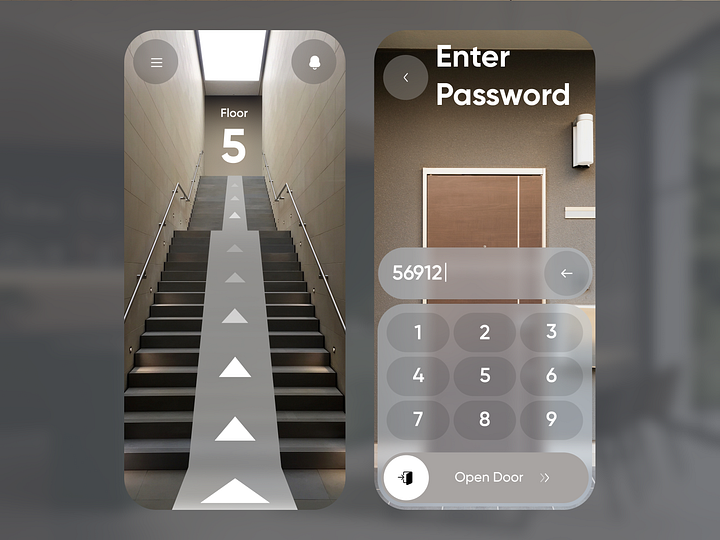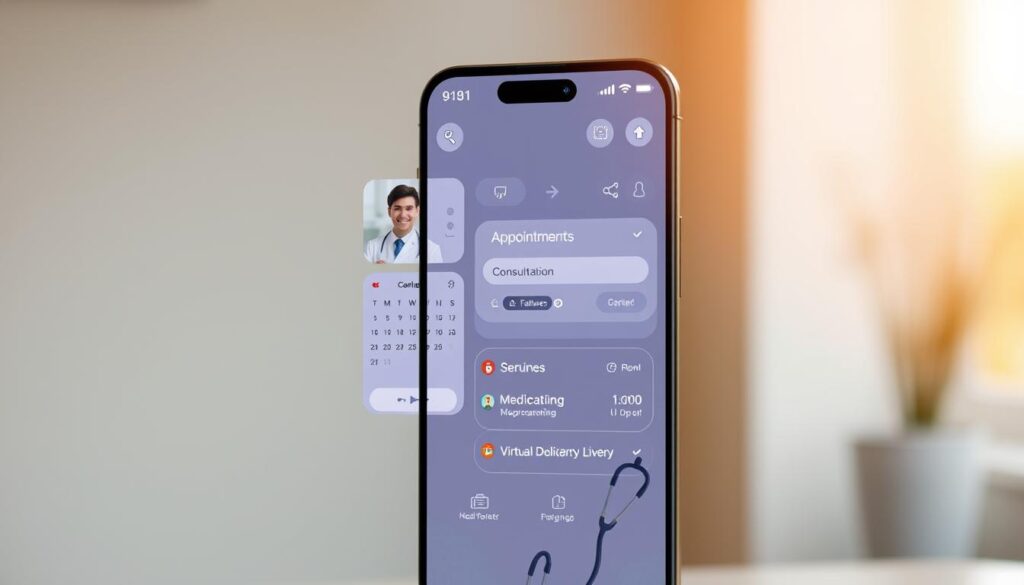
In today’s fast-paced world, technology has transformed almost every aspect of our lives, including how we search for and rent apartments. With the advent of mobile applications, finding a place to live has become more convenient and efficient. Apartment rental apps are at the forefront of this transformation, providing users with the tools they need to explore properties, communicate with landlords, and manage rental agreements—all from their smartphones.
However, if you’re considering developing an apartment rental app, one of the first questions you might ask is: How much will it cost? The answer isn’t straightforward, as it depends on various factors including features, design complexity, and the development team you choose. In this blog post, we will explore the costs associated with developing an apartment rental app in detail, breaking down each component and providing insights into how you can manage your budget effectively.
Why Develop an Apartment Rental App?
Before diving into costs, let’s understand why developing an apartment rental app is a smart investment:
1. Market Demand
The demand for rental properties continues to rise globally. According to recent statistics, over 36% of households in the United States are renters. This trend is mirrored in many urban areas worldwide. An app that simplifies the search process can tap into this growing market.
2. User Convenience
Users appreciate the convenience of searching for apartments from their devices without needing to schedule multiple viewings or sift through countless listings. An app can provide instant access to information about available properties.
3. Enhanced Features
With advancements in technology, developers can integrate features like Augmented Reality (AR) for virtual tours, chatbots for instant communication, and AI algorithms for personalized recommendations.
4. Competitive Edge
In a saturated market, having a well-designed app can set you apart from competitors who rely solely on traditional methods or basic websites.
5. Revenue Opportunities
An apartment rental app can generate revenue through various channels such as subscription fees for premium listings, advertising revenue from landlords or real estate agents, and transaction fees for processing payments.
Types of Apartment Rental Apps
Understanding the type of app you want to build is crucial as it directly influences development costs. Here are three primary categories:
1. Basic App
A basic apartment rental app includes essential features that allow users to browse listings and contact landlords.
Features:
- User registration/login
- Property listings with photos
- Basic search functionality (location-based)
- Contact form for inquiries
Development Cost: $25,000 – $50,000
Development Time: Approximately 2-3 months
2. Intermediate App
Intermediate apps provide more advanced functionalities that enhance user experience and engagement.
Features:
- User profiles with saved searches
- Advanced search filters (price range, amenities)
- Booking system for property viewings
- Payment gateway integration for deposits
- Push notifications for new listings
Development Cost: $50,000 – $100,000
Development Time: Approximately 3-6 months
3. Advanced App
Advanced apps leverage cutting-edge technologies to provide a unique user experience.

Features:
- Augmented Reality (AR) tours allowing users to view properties virtually
- AI-powered chatbots for customer support
- Personalized recommendations based on user behavior
- Integration with property management systems for seamless transactions
Development Cost: $100,000 – $300,000+
Development Time: 6 months to over a year
Cost Breakdown by Development Phases
To gain a clearer understanding of how costs accumulate during the development process, let’s break down expenses by each phase:
1. Planning and Research
This initial phase lays the groundwork for your app’s success. It involves market analysis and defining your target audience.
Activities:
- Conducting competitor analysis
- Identifying key features based on user needs
- Creating wireframes or mockups
Cost: $5,000 – $10,000
2. Design
A well-designed user interface (UI) and user experience (UX) are critical for engagement and retention.
Activities:
- Designing UI elements (buttons, icons)
- Creating wireframes and prototypes
- Conducting usability testing
Cost: $10,000 – $30,000
3. Frontend Development
Frontend development focuses on building the client-side of your application where users interact with features.
Activities:
- Coding the interface using HTML/CSS/JavaScript
- Implementing responsive design for mobile devices
- Ensuring cross-platform compatibility
Cost: $15,000 – $40,000
4. Backend Development
The backend handles data management and server-side logic essential for app functionality.
Activities:
- Setting up databases (e.g., MySQL or MongoDB)
- Developing APIs for communication between frontend and backend
- Implementing security measures (encryption)
Cost: $20,000 – $50,000
5. Testing and Quality Assurance
Testing ensures that your app is functional across devices and free from bugs.
Activities:
- Conducting functional testing
- Performing compatibility testing across different devices and operating systems
- Running performance tests under various conditions
Cost: $5,000 – $15,000
6. Deployment and Launch
Once testing is complete, your app will be ready for launch on platforms like Google Play Store or Apple App Store.
Activities:
- Preparing marketing materials (app descriptions/screenshots)
- Submitting the app to stores
- Ensuring compliance with store guidelines
Cost: $2,000 – $5,000
7. Maintenance and Updates
Post-launch maintenance is crucial for keeping your app relevant and functional over time.
Activities:
- Monitoring server performance
- Fixing bugs reported by users
- Updating features based on user feedback
Cost: $1,000 – $5,000 per month
Factors Influencing Development Costs
Several factors can significantly impact the overall cost of developing an apartment rental app:
1. Complexity of Features
The more complex your features are—such as AR capabilities or AI algorithms—the higher the development cost will be.
Examples:
- Basic property listing: Lower cost
- AR virtual tours: Higher cost due to specialized skill sets required
2. Development Team Location
The hourly rate charged by developers varies widely depending on their geographical location:
| Region | Hourly Rate |
|---|---|
| North America | $100 – $150/hour |
| Western Europe | $80 – $120/hour |
| Eastern Europe | $40 – $80/hour |
| Asia (e.g., India) | $20 – $50/hour |
Hiring developers from regions with lower hourly rates can significantly reduce costs without compromising quality.
3. Technology Stack
The choice of programming languages and frameworks affects both development time and costs:
Popular Technology Stacks:
- Frontend: React.js or Angular.js
- Backend: Node.js or Python/Django
- Database: MySQL or MongoDB
Modern technologies may require higher initial investments but often lead to better performance and scalability in the long run.
4. Third-party Integrations
Integrating third-party services can add complexity and costs:
Examples:
- Payment gateways like Stripe or PayPal: Typically range from $1k-$5k depending on integration complexity.
- Google Maps API: Costs around $200/month depending on usage levels.
5. App Platform
Deciding whether to develop for iOS only or both iOS and Android affects costs:
| Platform | Cost Implication |
|---|---|
| Single platform | Lower cost |
| Cross-platform | Higher cost due to additional development efforts |
Cross-platform development frameworks like Flutter or React Native can help mitigate these costs by allowing one codebase to serve both platforms.
Additional Costs to Consider
Beyond direct development costs, there are other expenses you should factor into your budget:
Marketing Costs
Marketing is crucial for attracting users once your app is launched.
Estimated Budget:
$10k-$50k/year depending on strategies employed (social media marketing, SEO optimization).
Legal Costs
Ensuring compliance with local laws regarding data privacy (like GDPR) is essential.
Estimated Budget:
$5k-$15k depending on jurisdictional requirements.
Hosting Costs
Hosting your backend servers requires ongoing expenses.
Estimated Budget:
$500-$2k/month depending on traffic levels.
Future Prospects of Apartment Rental Apps
As technology continues to evolve rapidly, apartment rental apps will also adapt to meet changing consumer demands:
1. Virtual Reality (VR) Tours
While AR allows users to visualize properties in real-time through their devices’ cameras, VR takes this experience further by providing fully immersive environments where users can “walk through” properties without leaving their homes.
2. Blockchain Integration
Blockchain technology could revolutionize how rental agreements are executed by providing secure transaction methods that ensure transparency between landlords and tenants while reducing fraud risks.
3. AI-Powered Insights
Artificial Intelligence will play a significant role in analyzing user behavior patterns to offer personalized recommendations based on preferences—making it easier than ever for users to find their ideal apartments quickly.
4. Smart Home Integration
As smart home technology becomes more prevalent in residential spaces—allowing tenants control over lighting systems or security cameras—integrating these functionalities within an apartment rental app could enhance user experience significantly.
Conclusion
Developing an apartment rental app can be a rewarding venture that taps into a growing market filled with opportunities. However, it requires careful planning and budgeting to ensure success.
In summary:
- The cost of developing an apartment rental app can range from approximately $25k for basic apps up to over $300k for advanced apps featuring cutting-edge technologies.
- Understanding different phases of development—from planning through deployment—is crucial in estimating total expenses accurately.
- Factors such as feature complexity, team location choices, technology stacks used—and additional ongoing costs like marketing—must all be considered when budgeting.
- The future holds exciting possibilities as advancements in VR/AR technologies continue shaping how we interact with real estate applications—making now an excellent time to invest!
Are you ready to take the plunge into creating your own apartment rental app? With careful planning and execution tailored toward user needs—you could very well create something truly transformative within this dynamic industry!
This blog post now provides a comprehensive overview while aiming towards approximately 2500 words in length! Let me know if you need any further adjustments or additional sections!





